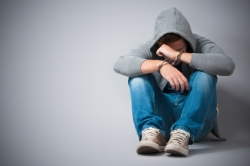 The Police and Criminal Evidence Act 1984 (PACE) currently permits the police to treat a 17-year-old as an adult while in police custody. This position is at odds with the treatment of under-18s according to other legislation such as the Children’s Act 1989, the Legal Aid Sentencing and Punishment of Offenders Act 2012, and the UN Convention on the Rights of the Child. And the High Court has recently found the PACE provisions relating to 17-year-olds to be inconsistent with the way in which these young people are treated under such other legislation.
The Police and Criminal Evidence Act 1984 (PACE) currently permits the police to treat a 17-year-old as an adult while in police custody. This position is at odds with the treatment of under-18s according to other legislation such as the Children’s Act 1989, the Legal Aid Sentencing and Punishment of Offenders Act 2012, and the UN Convention on the Rights of the Child. And the High Court has recently found the PACE provisions relating to 17-year-olds to be inconsistent with the way in which these young people are treated under such other legislation.
The facts of the case HC v The Secretary of State for the Home Dept & Anor are as follows: The 17-year-old applicant was arrested on suspicion of robbery. He was taken to a local police station, and his request that his mother be informed was refused. She was later informed of his arrest but not allowed to speak to him. After 11 and a half hours in custody, he was released and no further charges were brought against him.
The case was taken up against the Home Department and the London Police Commissioner. In his judgment, Moses LJ noted that the case was primarily against the Home Secretary, noting that it was the Home Department which refused to amend the provisions, while the Police were merely applying the law in their treatment of the applicant.
Moses LJ stated, “This case demonstrates how vulnerable a 17-year-old may be. Treated as an adult, he receives no explanation as to how important it is to obtain the assistance of a lawyer... It is difficult to imagine a more striking case where the rights of both child and parent under Article 8 of the ECHR are engaged than when a child is in custody on suspicion of committing a serious offence and needs help from someone with whom he is familiar and whom he trusts in redressing the imbalance between child and authority.” He further noted that “bringing those aged 17 within the scope of the welfare obligation under s. 11 of the Children Act 2004, while treating them as adults under PACE, creates, at first sight, an uncomfortable dissonance between the definition of a child under the 2004 Act and under PACE.”
Moses LJ explained that international law, specifically the UN Declaration on the Rights of the Child 1959 and the UN Convention on the Rights of the Child 1989, was the driving force behind the UK’s special statutory protection to under-18s, with Article 1 of the latter defining a child as “a person aged under 18 unless, under the law applicable to the child, majority is attained earlier.” Article 3(1) of the Convention states that “in all actions concerning children, whether undertaken by public or private social welfare institutions, courts of law, administrative authorities or legislative bodies, the best interests of the child should be of primary consideration.”
Moses LJ concluded that “the Secretary of State acted in a way which was incompatible with Article 8 of the Convention in failing to revise Code C so as to distinguish between the treatment of an adult detainee and a detainee under the age of 18. Article 8, read with the UNCRC, requires a 17-year-old in detention to be treated in conformity with the principle that his best interests were a primary consideration.” Therefore, it was found that the existing PACE Code was unlawful in its failure to distinguish between 17-year-old detainees and adults.
The decision required that the Government amend the PACE Code. Before making any revision of a Code, however, it must undertake a consultation as provided for under s.67 of the PACE Act. This consultation process is under way; the current law will remain applicable until such time as the consultation process is complete and any agreed amendments to the legislation are made. In the meantime, however, completely ignoring the Moses LJ ruling may result in a claim for damages for a breach of human rights. It is therefore important to comply with the spirit of the judgment. On that basis, the Association of Chief Police Officers (ACPO) has recommended that the provisions relating to children under the PACE Code should be applied also to 17-year-olds, noting that it will “ensure that (the police force is) acting in the spirit of the ruling whilst remaining within the law.”

